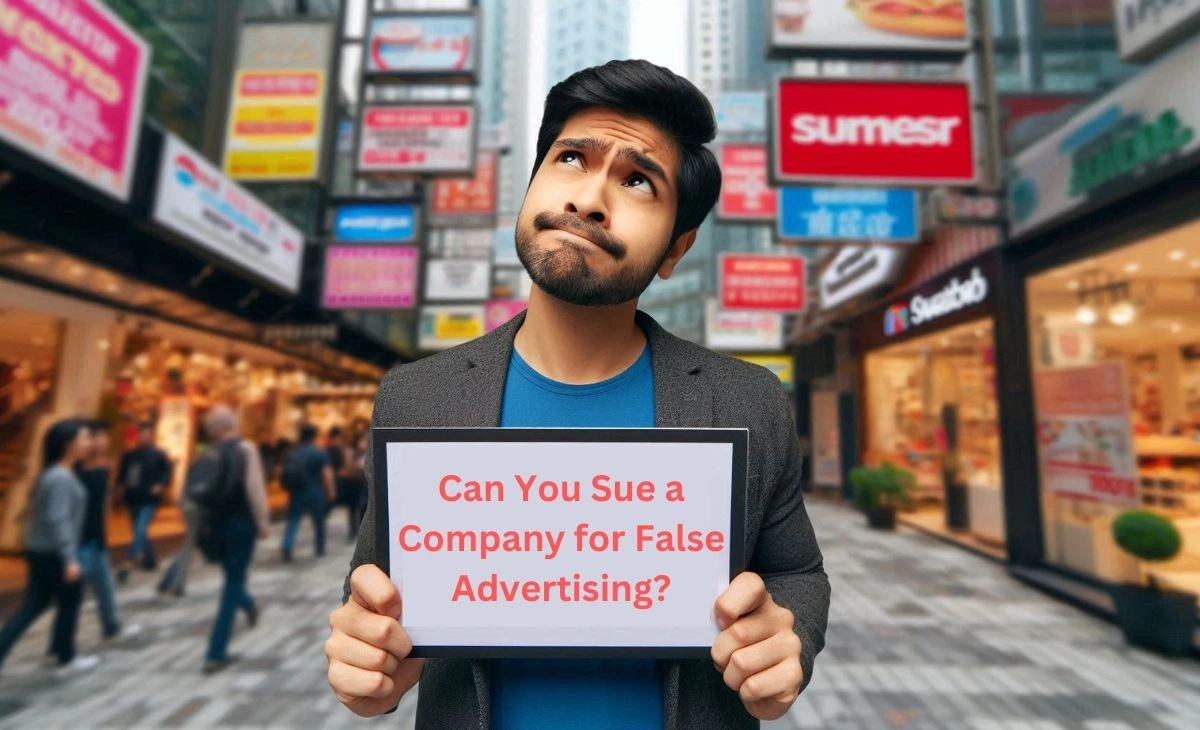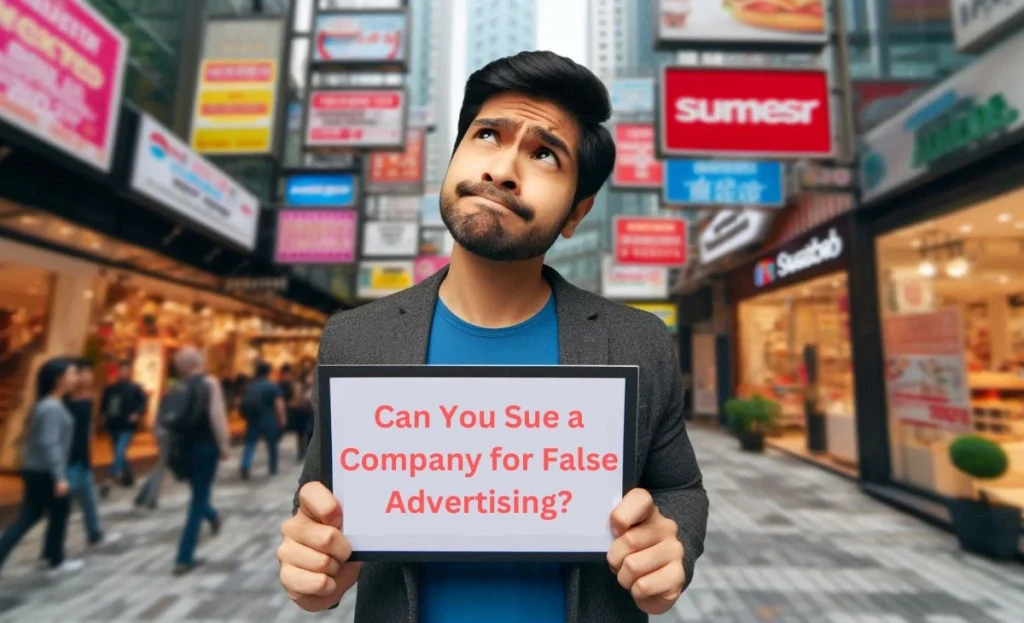
Newsletter Subscribe
Enter your email address below and subscribe to our newsletter

Enter your email address below and subscribe to our newsletter

False advertising is more than just frustrating — it can also lead to serious financial losses for consumers. But can you sue a company for false advertising? The short answer is yes. If you’ve been misled by a company’s deceptive practices, you have the right to take legal action. However, the process involves specific steps and requirements that need to be followed carefully.
False advertising happens when a company lies or makes false promises about what their product or service can do. This can range from exaggerated product benefits to hidden fees or incorrect pricing. Let’s dive into the details of how you can sue a company for these unfair practices and what you should know before taking action.
False advertising is illegal, and companies that engage in these practices can be held accountable under various U.S. laws. The Federal Trade Commission (FTC) plays a key role in protecting consumers from these deceptive practices. The FTC says that any ad that tricks or misleads people in an important way is called false advertising. But what does that mean for you as a consumer?
If you have been misled by a company’s marketing or advertising, you may be able to sue under consumer protection laws. These laws focus on fraud, misrepresentation, and unfair competition. Tricking people with wrong prices, switching products after they’re chosen, and making false claims about how well a product works are all examples of illegal advertising. As a consumer, you can file a complaint with the FTC or pursue a legal claim in court.
To prove false advertising, you need to show that the ad made you buy the product and that you lost money because of it. Having proof like receipts, screenshots, or messages is very important for your case.
To understand how false advertising works, let’s look at some common examples. These deceptive practices are often subtle, but they can seriously impact consumers.
Bait-and-Switch: This happens when a company advertises a product at a low price, but then says they don’t have it and try to sell you a more expensive one. This tactic is illegal because it lures customers in with false promises.
Misleading pricing is when a company says a product is on sale, but it’s actually the same price as always. This is a trick to make people think they’re getting a good deal.
Exaggerated Product Claims: This is when a company promises results that the product can’t actually deliver. For example, if a skincare product claims to eliminate wrinkles in one week but doesn’t, that’s misleading.
Hidden fees are when a company advertises a product at one price, but then charges you more when you try to buy it. This is a dishonest practice.These examples show how companies can stretch the truth to make a sale. If you’ve experienced any of these, you might have grounds to sue.
If you’ve fallen victim to false advertising, you may feel overwhelmed. But don’t worry — there are steps you can take to protect yourself and potentially win a lawsuit against the company.
Gather Evidence: Start by collecting all the evidence of the false advertising. This can include pictures of the ad, your receipt, messages with the company, and any papers that show the ad was wrong.
File a Complaint with the FTC: Before heading to court, you should file a formal complaint with the FTC. The FTC investigates consumer complaints and may take action against the company. Although this might not get you direct compensation, it helps build your case.
Consider Legal Action: After filing your FTC complaint, you can consider taking legal action. Contact a lawyer who specializes in consumer protection or fraud. They can help guide you through the legal process.
Prepare for Court: If you decide to sue, you need to prove that the false ad caused you to lose money. This means having good evidence and showing how the wrong ad made you buy the product..
Taking these steps can increase your chances of winning a case and receiving compensation.

So what can you expect if you win a false advertising lawsuit? There are several possible outcomes, depending on the situation:
Compensation: You might receive financial compensation for the damages you’ve suffered. This can include the money you spent on the product or service, as well as any other losses you had because of the false ad.
Settlement: Often, companies prefer to settle the case outside of court to avoid bad press and the expensive legal process. Settlements often result in quicker resolutions and fair compensation for the consumer.
Injunctive Relief: In some cases, the court may require the company to change its advertising practices. This helps protect other consumers from being misled in the future.
If you think a company tricked you with their ads, you can sue them. This can help you get your money back or make them stop using those tricks.
If a company’s false advertising has hurt many people, a class action lawsuit might be a good choice. In a class action, many people can sue together, making the case stronger and possibly leading to bigger results.
Class actions are often used when many people have been tricked by a company’s false ads. For example, if a product doesn’t work as advertised or many people were fooled by a bad promotion. These lawsuits can lead to bigger settlements or better results because the company is under pressure from many people at once.
To start or join a class action lawsuit, you would typically work with a lawyer who specializes in this area. If successful, class action suits can provide compensation to all involved parties.
False advertising can happen anywhere, but if you’re careful and know what to look for, you can avoid being tricked. Here are a few ways to stay safe:
Verify Claims: Don’t take advertisements at face value. Research products and check reviews from other consumers before making a purchase.
Report Suspicious Ads: If you come across an ad that seems misleading or deceptive, report it to the FTC. Your report could help stop others from being tricked.
Know Your Legal Options: If you’ve been a victim of false advertising, know that you have legal options. Whether you file a complaint with the FTC or pursue legal action, there are steps you can take to hold companies accountable.
By staying vigilant, you can avoid the pitfalls of false advertising and take the right actions if you ever become a victim.